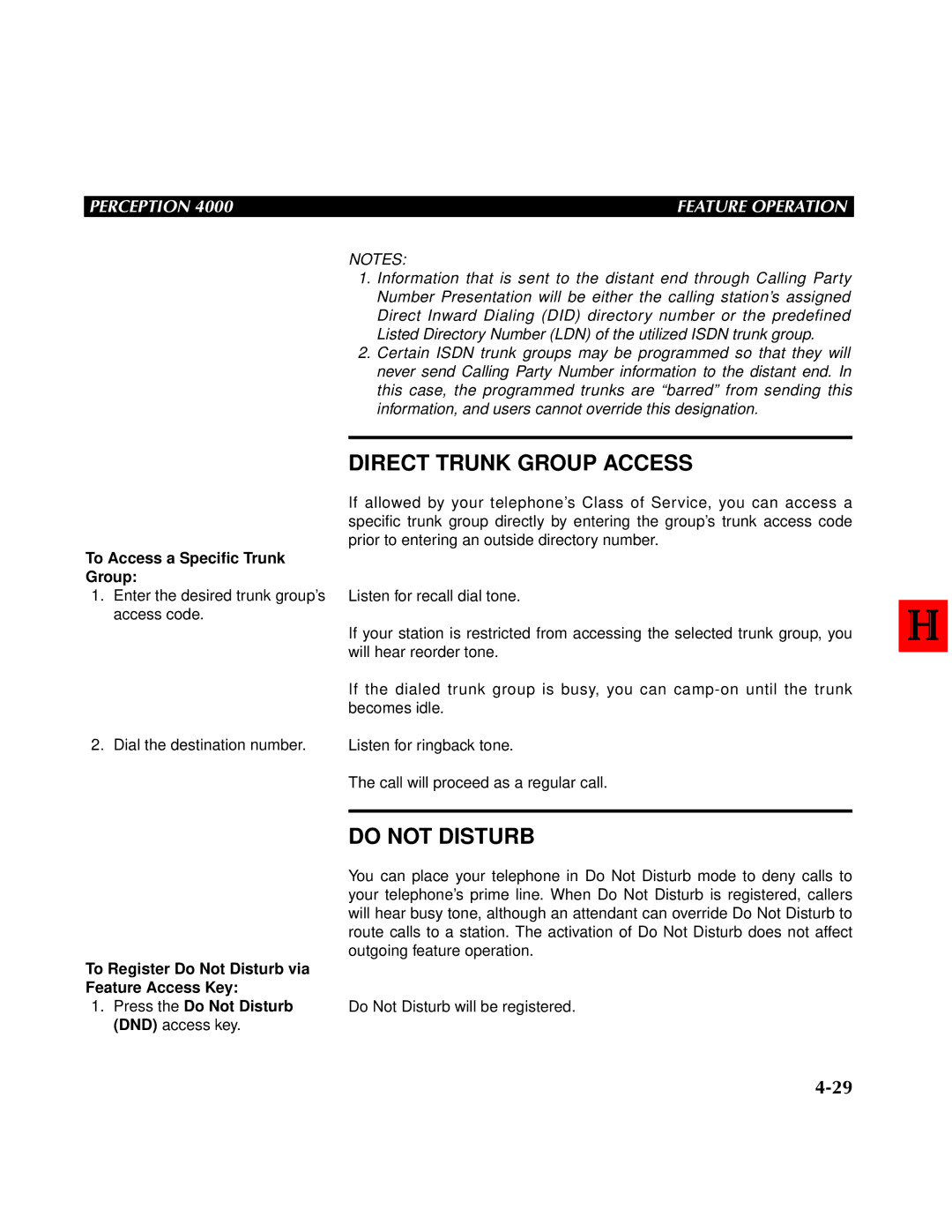
PERCEPTION 4000 | FEATURE OPERATION | ||
|
| NOTES: | |
|
| 1. Information that is sent to the distant end through Calling Party | |
|
| Number Presentation will be either the calling station’s assigned | |
|
| Direct Inward Dialing (DID) directory number or the predefined | |
|
| Listed Directory Number (LDN) of the utilized ISDN trunk group. | |
|
| 2. Certain ISDN trunk groups may be programmed so that they will | |
|
| never send Calling Party Number information to the distant end. In | |
|
| this case, the programmed trunks are “barred” from sending this | |
|
| information, and users cannot override this designation. | |
|
|
|
|
|
| DIRECT TRUNK GROUP ACCESS | |
|
| If allowed by your telephone’s Class of Service, you can access a | |
|
| specific trunk group directly by entering the group’s trunk access code | |
|
| prior to entering an outside directory number. | |
To Access a Specific Trunk |
|
| |
Group: |
|
| |
1. | Enter the desired trunk group’s | Listen for recall dial tone. | |
| access code. |
|
|
|
| If your station is restricted from accessing the selected trunk group, you | |
|
| will hear reorder tone. | |
|
| If the dialed trunk group is busy, you can | |
|
| becomes idle. | |
2. | Dial the destination number. | Listen for ringback tone. | |
|
| The call will proceed as a regular call. | |
To Register Do Not Disturb via Feature Access Key:
1.Press the Do Not Disturb (DND) access key.
DO NOT DISTURB
You can place your telephone in Do Not Disturb mode to deny calls to your telephone’s prime line. When Do Not Disturb is registered, callers will hear busy tone, although an attendant can override Do Not Disturb to route calls to a station. The activation of Do Not Disturb does not affect outgoing feature operation.
Do Not Disturb will be registered.
